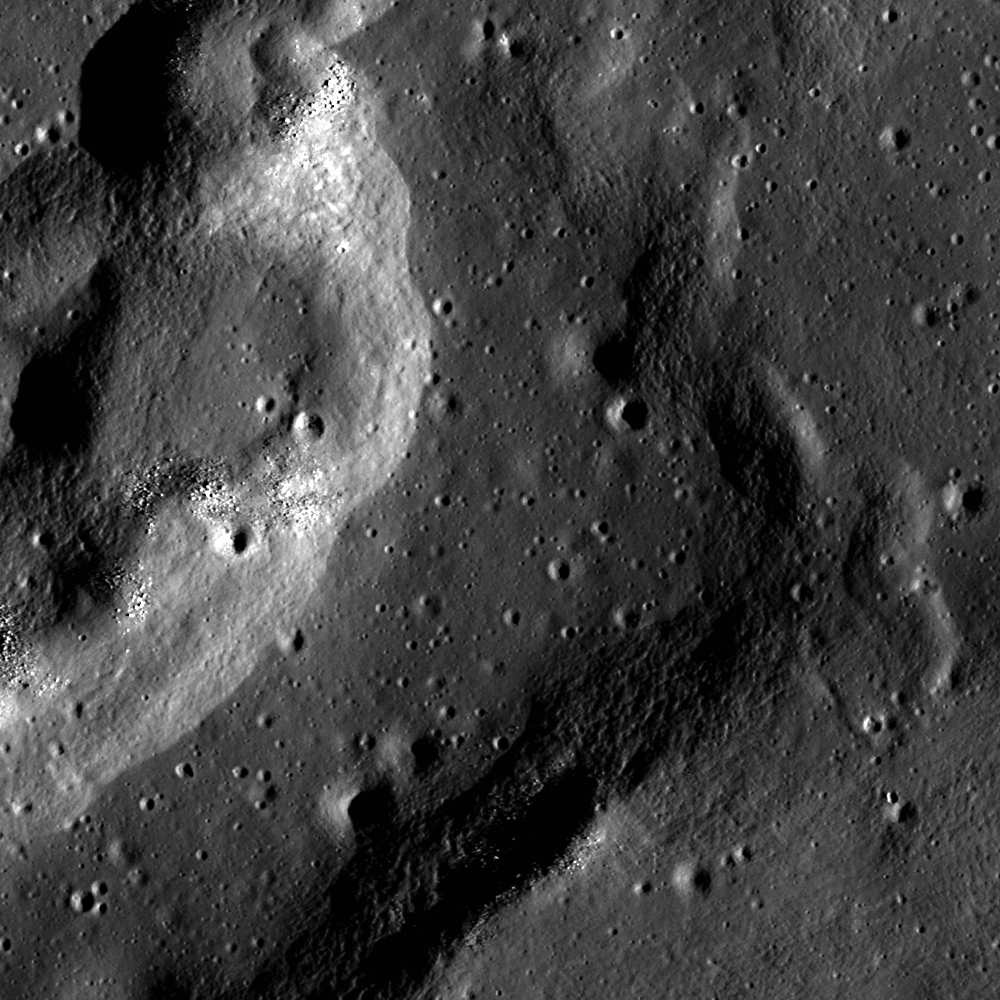Wrinkle Ridge in Mare Crisium

| Credit | NASA/GSFC/Arizona State University |
|---|---|
| Language |
|
Mare Crisium is a large, dark, basaltic plain on the Moon that filled an ancient asteroid impact. Basaltic plains on the Moon were created by early volcanic eruptions. Mare Crisium was flooded with basaltic lava, a dark, runny lava commonly found on Earth.
Basaltic plains on the Moon are also known as lunar maria, because of a mistaken belief by early astronomers that these dark areas were oceans — “maria” is the Latin word for “seas.” We now know these spots to be plains of basalt created by early volcanic eruptions, but the nomenclature of ‘maria’ (plural) or ‘mare’ (singular) remains.
The basalts in Mare Crisium range in age from 2.5 to 3.3 billion years old! These dates come from measuring the radioactive isotope signatures of samples returned from Mare Crisium by the Soviet Luna 24 mission.
Along the rim of Mare Crisium lies an outer boundary of wrinkle ridges. Wrinkle ridges are commonly found in places where the surface has contracted. As the surface is compressed, it bends and fractures, and can form complicated patterns of faults and folds.
Author: Caroline Capone
Science Advisor: Andrea Jones
